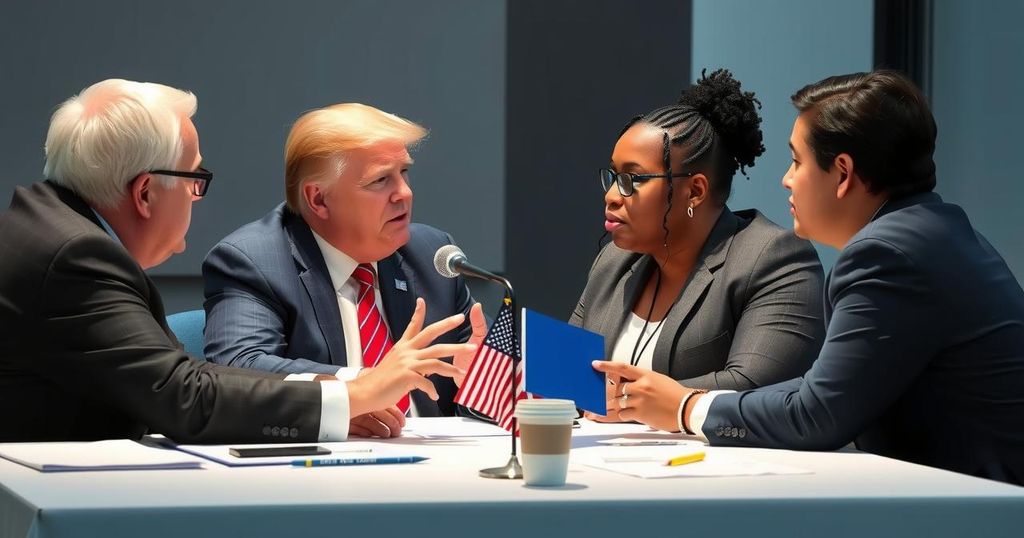Politics
2024 PRESIDENTIAL ELECTION, 90TH RECRUIT TRAINING GROUP, ALBANY, ALFRED E. SMITH, BRAZIL, CALIF, CALIFORNIA, CENTER, CHICAGO, CHICAGO FIELD OFFICE, COLORADO, ELECTION, ERIN HOOLEY, GRAND RAPIDS, ILLINOIS, KAMAL, MARYLAND, MASS, MASSACHUSETTS, MASSACHUSETTS STATE POLICE, MEDIA, MICH, MICHIGAN, N. J, NEW HOPE BAPTIST CHURCH, NEW JERSEY, NEW YORK, NEWARK, NORTH AMERICA, PENNSYLVANIA, PHIL MURPHY, POLICE, PRESIDENTIAL ELECTION 2024, QUEENS, RIVERSIDE PARK, SECRET SERVICE, SOUTH AMERICA, TONY EVERS, U. S. SECRET SERVICE, U.S. ELECTIONS, UNITED STATES, WISCONSIN, WORCESTER
Fatima Khan
0 Comments
Democratic Governors Adapt Strategy: From Opposition to Collaboration with Trump
Following Donald Trump’s election, prominent Democratic governors are redefining their approaches from strong criticism to seeking coalitions. Governors like Phil Murphy and Kathy Hochul aim to balance opposition to Trump’s policies with efforts for bipartisan cooperation. With differing strategies across state leadership, the focus remains on prioritizing state interests while managing relationships with the Trump administration.
In the aftermath of Donald Trump’s election victory, several Democratic governors are adjusting their strategy from fierce opposition to potential collaboration with the incoming administration. This shift is particularly evident among governors such as Phil Murphy of New Jersey and Kathy Hochul of New York, who are navigating the delicate balance between opposing Trump on critical issues and finding areas for cooperative governance. While some governors remain assertive, others, like J.B. Pritzker of Illinois and Maura Healey of Massachusetts, exhibit a more tempered approach, keen on fostering communication and possibly collaboration with Trump amidst the backdrop of prior criticisms during his presidency. The collective aim seems to be ensuring that their states’ interests are prioritized without igniting unnecessary tensions with the newly elected president.
Democratic governors across the United States are reassessing their stances in light of Donald Trump’s recent electoral victory. Having previously expressed strong opposition and criticism towards Trump, particularly surrounding his political agenda and policies, these governors now face the challenge of establishing functional relationships with his administration. The juxtaposition of their former combative rhetoric against the need for pragmatic cooperation forms the core of their evolving political strategy. The governors’ decisions reflect broader political dynamics as they seek to represent their constituents while adapting to a shifting political landscape.
In conclusion, the Democratic governors’ transition from adversarial posturing to a more conciliatory approach illustrates the complex realities of politics. As they aim to bridge gaps with President-elect Trump, their actions will likely shape both state-level governance and broader national policy discussions. The governors’ efforts to find common ground, despite previous criticisms, highlight their commitment to their constituents’ interests and reflect the intricacies of American political relations. How effectively they navigate this balance will set the tone for the upcoming administration’s interactions with state leaders.
Original Source: apnews.com




Post Comment